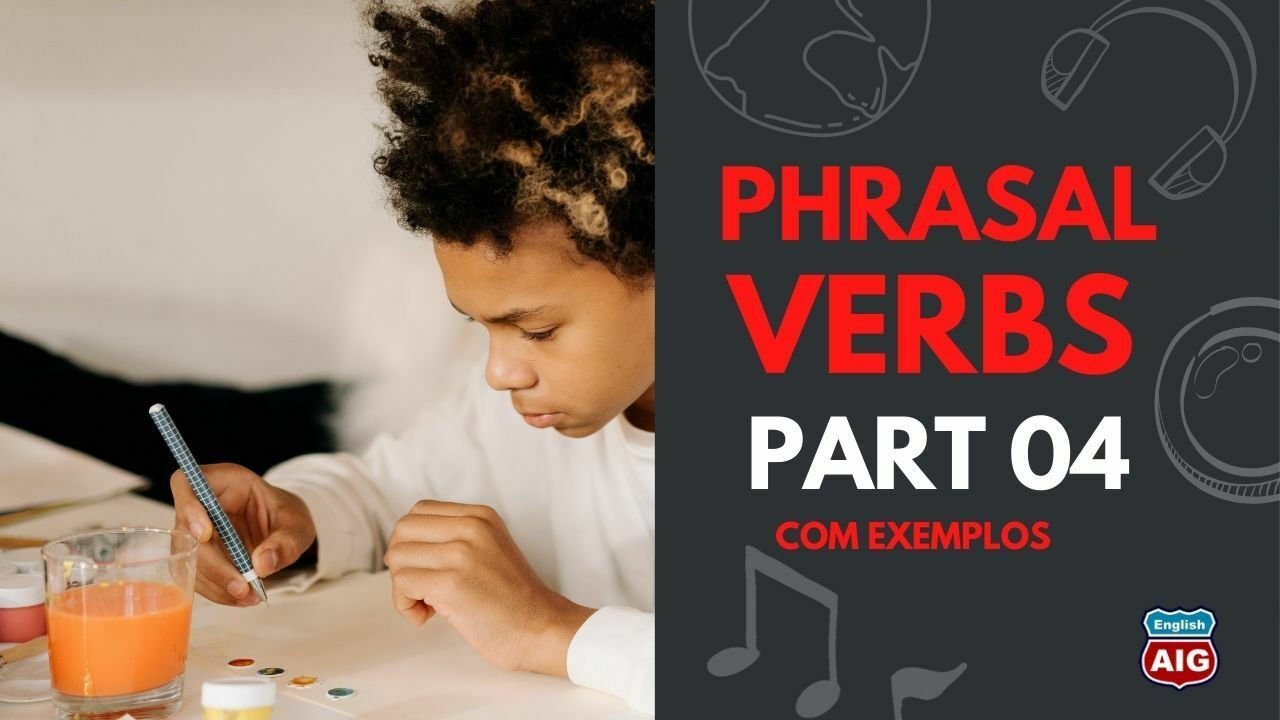Lista dos Phrasal Verbs com a Letra C
The job calls for English fluency. –
O emprego exige fluência em inglês.
CALL OFF –
I’m going to call off my medical appointment because I feel much better now. –
Vou cancelar minha consulta médica porque me sinto bem melhor agora.
CALL ON –
I sometimes call on my friends for help with problems. –
Eu às vezes recorro a meus amigos em busca de ajuda para meus problemas.
CALL UP –
I’m going to call up my sister tonight. –
Vou ligar para minha irmã hoje à noite.
CALM DOWN –
They’re having an argument. Let’s calm them down. –
Eles estão tendo uma briga. Vamos acalmá-los.
CARE FOR –
He is not the kind of person who cares for others. –
Ele não é do tipo que se preocupa com os outros.
CARRY ON WITH –
The doctor told her to carry on with the treatment. –
O médico disse a ela que continuasse com o tratamento.
CARRY OUT –
The manager has an assistant to carry out general tasks like typing and answering the telephone. –
O gerente tem um assistente para executar tarefas gerais tais como datilografia e atender o telefone.
CATCH ON –
The teacher repeats grammar exercises until the students catch on. –
O professor repete exercícios gramaticais até que os alunos peguem a matéria.
CATCH UP WITH –
I’ve been getting low grades, but I’ll study hard and catch up with the other students. –
Tenho recebido notas baixas, mas vou me esforçar e alcançar os demais alunos.
CHEAT ON –
Mary’s husband has been cheating on her. –
O marido da Mary anda enganando ela.
CHECK OUT –
Where did you get this information? I’ll check it out. –
De onde você tirou estas informações? Eu vou verificar.
CHECK OUT OF –
You have to check out of the hotel before noon. –
Você tem que dar saída do hotel antes do meio-dia.
CLEAN UP –
Clean up your room, please. –
Limpa e arruma teu quarto, por favor.
CLEAR UP –
I’m going to the bank to clear up the problem with my credit card. –
Vou ao banco para esclarecer o problema com meu cartão de crédito.
CLIMB UP –
It takes more than 4 hours to climb up that mountain. –
Leva mais do que 4 horas para escalar aquela montanha.
COME ACROSS –
He came across an old friend. –
Ele encontrou um velho amigo.
COME BACK –
He came back to Brazil after two years abroad. –
Ele retornou ao Brasil depois de passar dois anos no exterior.
COME UP TO –
He came up to me and said: ‘you are under arrest.’ –
Ele chegou a mim e disse: – você está preso.
COME UP WITH –
He came up with an umbelievable explanation. –
Ela veio com uma explicação inacreditável.
COMMENT ON –
The reporter commented on the need for better health care. –
O repórter comentou a respeito da necessidade de melhor atendimento à saúde.
CONFORM TO –
The army requires that all soldiers conform to strict rules. –
O exército exige que todos soldados submetam-se a regras rígidas.
CONSENT TO –
He will only consent to signing the contract if it complies with his demands. –
Ele só vai concordar em assinar o contrato se o mesmo atender às suas exigências.
COUNT IN –
If you are going for a picnic, count me in. –
Se forem fazer um piquenique, contem comigo.
COUNT ON –
We can’t count on you because you are never here when we need you. –
Não podemos contar com você porque você nunca está aqui quando precisamos de você.
COUNT OUT –
If you support the war, count me out! –
Se vocês estão apoiando a guerra, me deixem fora disso.
CRACK DOWN ON –
The police need to crack down on burglary. –
A polícia precisa tomar medidas severas contra furto.
CROSS OUT –
I crossed out all the errors in the essay. –
Risquei todos os erros do trabalho.
CUT OFF –
1. The electric company cut off our service until we paid our bill. –
A companhia de energia elétrica cortou nossa eletricidade até pagarmos nossa conta.
2. We got cut off before we could finish the phone conversation.–
A linha caiu antes que pudéssemos terminar nossa conversa por telefone.






